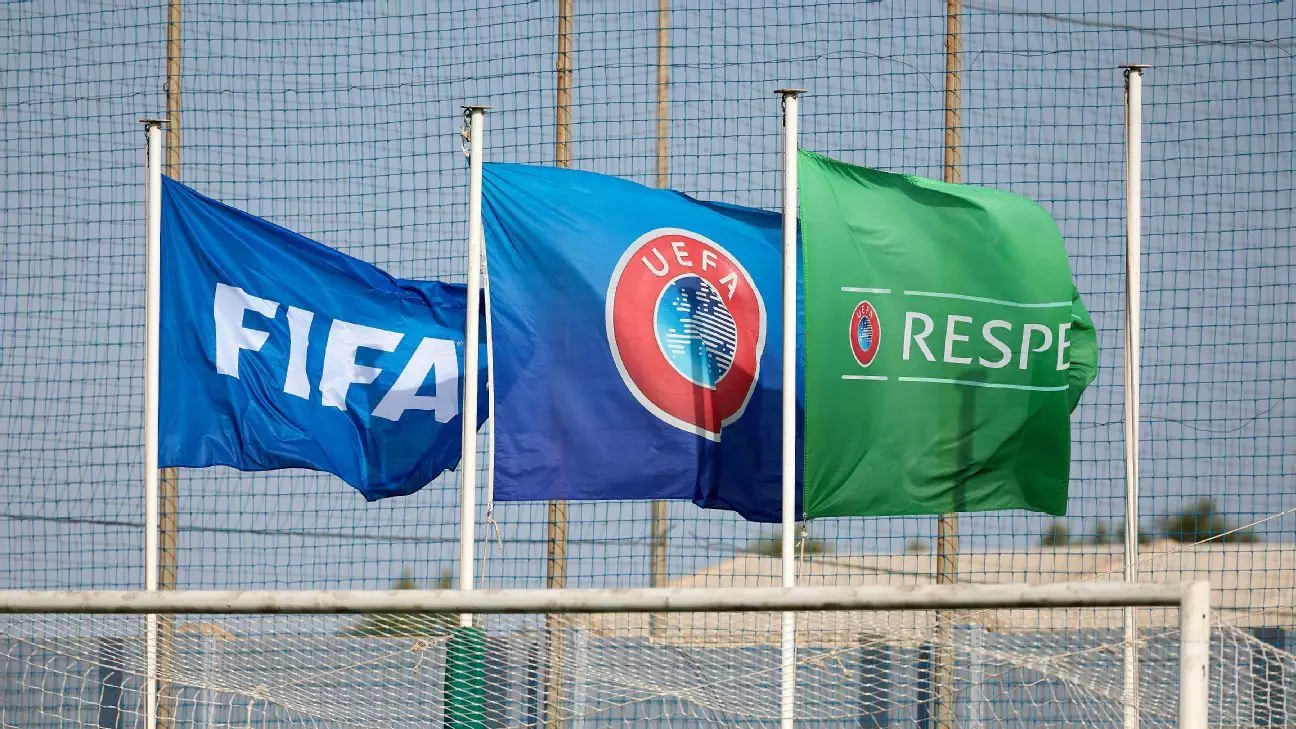In a groundbreaking decision, the European Court of Justice (ECJ) ruled on Thursday that UEFA has been “abusing a dominant position” in its control of European football. This ruling is a game-changer for the Super League project and its backers, A22 Sports, who argued that UEFA’s prohibition of the competition and its threatened punishments for participating clubs were illegal under European competition law. The court’s decision not only questions the transparency, objectivity, and non-discrimination of FIFA’s and UEFA’s rules, but it also challenges their exclusive control over the commercial exploitation of competition rights. This article will delve into the implications of the ruling and how it has the potential to reshape European football.
The ECJ found that FIFA’s and UEFA’s rules requiring new football competitions to be subject to their prior approval and banning players from participating in those competitions were “unlawful.” The court maintained that since organizing football competitions is an economic activity, it must comply with competition rules and respect the freedom of movement. This ruling opens the door to new opportunities for competition within European football. It establishes that competitions like the Super League project, although not necessarily approved, cannot be prohibited based on FIFA’s and UEFA’s rules, highlighting the need for a transparent framework that respects competition and freedom of choice.
One of the significant implications of the ECJ ruling is that it breaks UEFA’s monopoly over European football. Bernd Reichart, CEO of A22 Sports, expressed his satisfaction with the ruling, stating, “We’ve won the right to compete. UEFA’s monopoly is over. Football is free. Now the clubs won’t suffer threats and punishments. They’re free to decide their own future.” This newfound freedom allows clubs to explore alternative competitions and formats, providing them with greater autonomy and control over their destinies.
UEFA released a statement asserting that the ruling does not signify an endorsement or validation of the Super League, but rather highlights a pre-existing shortfall in their pre-authorization framework. They claim to have already addressed this issue in June 2022 by updating their rules to comply with relevant European laws and regulations. While UEFA maintains confidence in the robustness of its new rules, the ECJ ruling calls for a reevaluation of their approach to competition and the protection of the rights of clubs, players, and fans.
To understand the significance of the ECJ ruling, it is essential to revisit the origins of the Super League project. Launched on April 18, 2021, the Super League aimed to challenge UEFA’s dominance as the organizer of the Champions League. Frustrated by the competition’s format and revenue model, twelve clubs, including Arsenal, Chelsea, Liverpool, Manchester City, Manchester United, and Tottenham Hotspur from the Premier League, signed up as members. However, widespread opposition from football’s governing bodies, fans, and politicians forced nine of these clubs to withdraw from the project, leaving only Real Madrid, Barcelona, and Juventus as remaining public backers.
With the ECJ ruling, clubs like Real Madrid and Barcelona, who were loyal supporters of the Super League project, expressed their satisfaction and optimism. Barcelona released a statement asserting that the ruling paves the way for a new elite level competition in Europe. This sentiment reflects the desire among certain clubs to redefine the landscape of European football and create a more meritocratic format that aligns with their vision.
Since October 2022, A22 Sports, led by CEO Bernd Reichart, has been actively pursuing ways to relaunch and rebrand the Super League. They are proposing a more open and meritocratic format that prioritizes the interests of fans and guarantees club income and solidarity payments. Reichart emphasized their commitment to broadcasting all Super League games for free, indicating their determination to prioritize accessibility and inclusivity.
It is important to acknowledge that the Super League project still faces opposition, particularly from organizations like Spain’s LaLiga and its president Javier Tebas. They argue that the competition would undermine and damage national leagues. Tebas stressed the legal question of the status of these competitions within the UEFA and FIFA ecosystem. While the ECJ ruling provides a framework for competing outside the FIFA and UEFA ambit, the debate regarding their status within these governing bodies remains ongoing.
The European Court of Justice’s ruling represents a significant turning point in European football. By challenging UEFA’s monopoly and calling for a transparent framework, the court has paved the way for new opportunities and increased autonomy for clubs. The Super League project, along with other potential competitions, can now operate within this framework, creating a more competitive and dynamic environment. The future of European football rests in the hands of the clubs, players, and fans, as they gain more control over the direction of the sport.

Leave a Reply